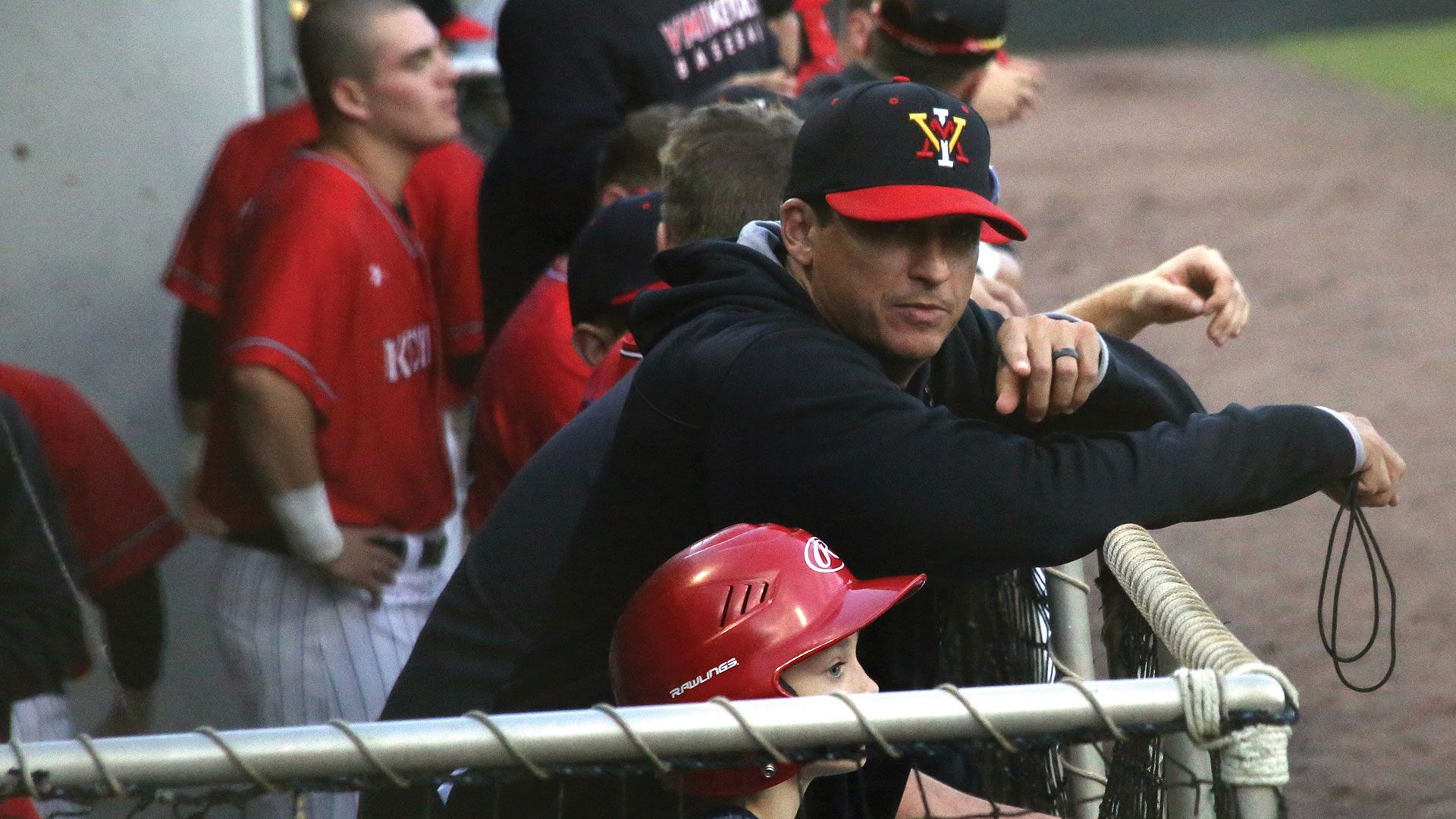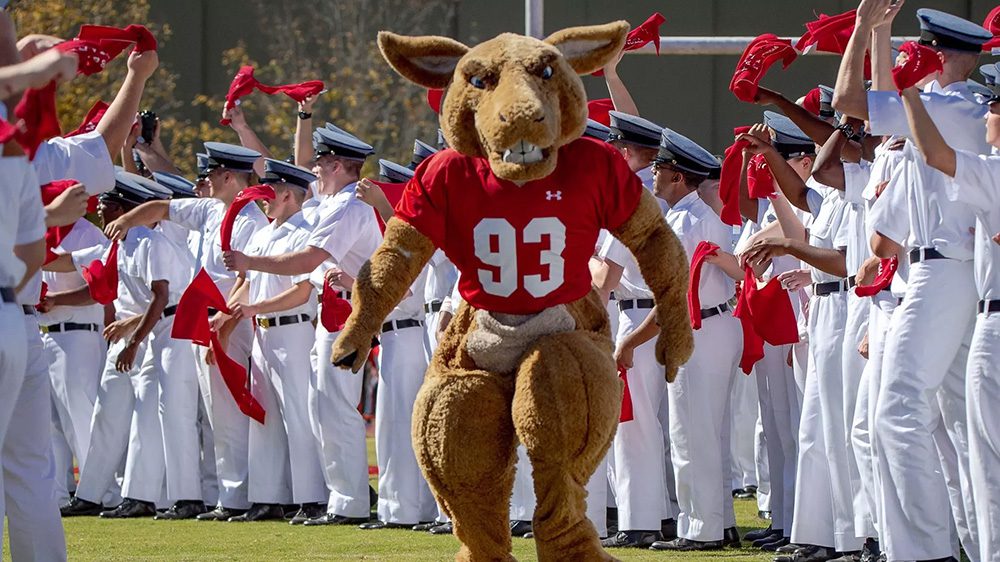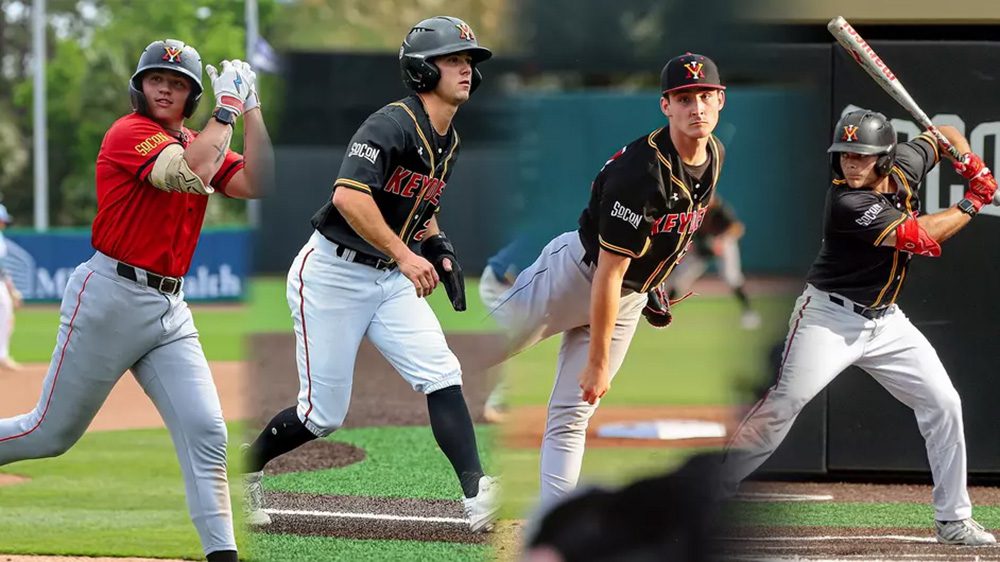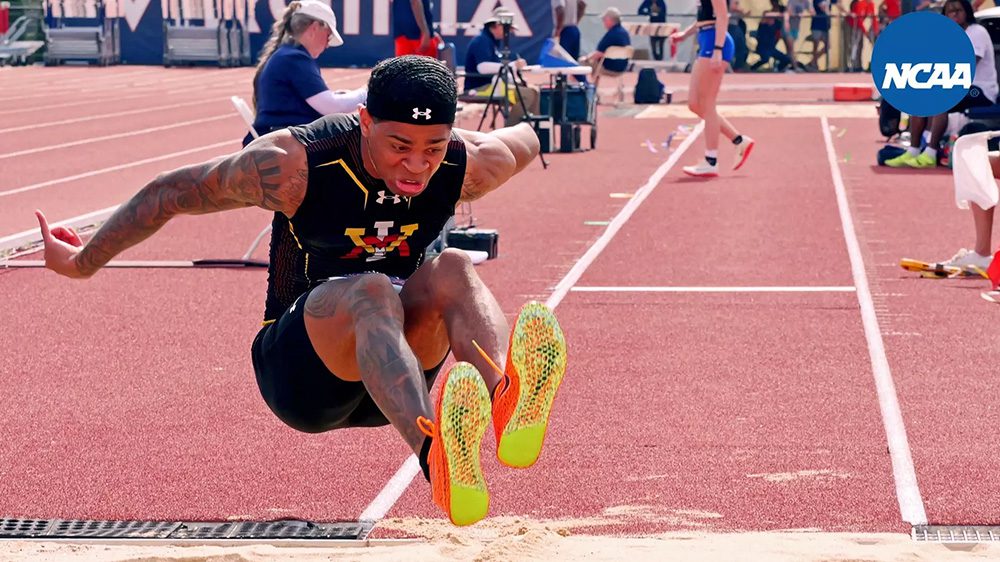Jonathan Hadra ’04 – the third-winningest baseball coach in VMI history – is coming into his fifth season as the Keydet skipper. He has a lot of reasons to love his job: The support of a “tremendous” coaching staff, his personal history at VMI and his family’s affinity for Virginia’s great valley – but cadet-athletes are the driving force behind why he has been coaching at VMI for nearly a decade.
“I’ve been at two other institutions and loved every minute of it,” Hadra said. “But there’s just something different about these cadet-athletes and what they’re going through.”
Hadra was a four-year letterman and the team captain his 1st Class year, experience he uses to mentor his team through their years on the Keydet diamond. One of the things Hadra and his staff teach their cadet-athletes is to focus on things they can affect. “That’s something VMI taught me as a young person,” he recalled. “You learn pretty quickly you can’t worry about stuff you have no control over. There are so many things; it’s impossible to do it all. You can’t worry about it. You just worry about what you can control.”
New cadets are also learning to mentally switch gears, Hadra said. They spend their days and nights on the upper part of campus, in the thick of VMI’s military activities. When they come down to Gray-Minor Stadium, they need to be ready to play baseball.
Conversely, when the players return to the top of the hill, Hadra needs them to “turn off the baseball side and turn on [military] side. It goes both ways. There’s a learning curve. You’re going through the Rat Line, and you’ve got all this stuff up on the hill. Then you come down and you have to practice. Sometimes it’s hard to leave that behind.”
Although coaching at VMI involves challenges unique to the Institute, there are distinct positives that are unlikely to happen in other college baseball programs. Topping the list is the closeness built through the Rat Line, which “naturally creates a very tight-knit group,” said Hadra. Adding to the team’s camaraderie is the “high character” of the young men he coaches. “Their make-up is outstanding. You’ve got guys who are ready to have a good time and work hard. As a coach, what more can you ask for?”
Hadra also calls on his own cadet background when he’s on the road, recruiting.
He is, along with Sam Roberts ’11, fellow VMI alumnus and assistant coach, able to give parents and prospective players a first-hand idea of what four years at VMI will entail. “We can speak the same language,” he said.
Recruiting is “all about transparency. I do not hide anything from anybody. I tell them how hard it’s going to be. We will show them the Rat Line. They will stay in barracks. They’re going to eat a meal in Crozet Hall,” Hadra said. “Quite frankly, there are some times when we lose kids early in the process because of that transparency.” The cadets who do choose to come to VMI, however, have a “firm foundation” and a clear understanding of what to expect at VMI – making them more likely to succeed at the Institute.
Hadra holds not just his players, but himself, to a high standard. His job, Hadra said, is helping his players make their way toward their objectives, starting with earning a degree and – for some – making it all the way to the major leagues.
“As a coach, I … want to invest in my players. The best coaches and leaders are people who invest in their players. Their players understand that [the coach] is working for them, to help them get to an end goal. I don’t really see [the players] as working for me. I treat it as ‘I’m working for them.’”
In that investment, Hadra has the company and support of his three “outstanding” assistant coaches: Roberts, Geoff Murphy and Grey Finwood. “I lean a lot on my staff,” Hadra said. “I’m only going to be as successful as the staff that I have. I ask a lot of them, and I trust them. They do a tremendous job while spending countless hours working for our players and program.”
Murphy – the recruiting coordinator – is the newest member of the staff, coming on board in summer 2018. He coaches hitters and catchers, drawing on his own experience as a catcher for Boston College. “Murphy has a great work ethic and is an excellent communicator,” said Hadra. “He’s an up-and-comer in this profession.”
Hiring Finwood, whose father is Chris Finwood ’88, Old Dominion University head baseball coach, was a great opportunity to get a “really good young coach,” Hadra said. The sports information office at ODU – where Finwood was an infielder – took note, as well, dubbing the 2018 Keydet/Monarch match-up “the first-ever Finwood Bowl.” Finwood works with Keydet outfielders and, as a Virginia native and son of an alumnus, has some familiarity with the Institute.
Roberts is number one in career hits at VMI, and is listed over a dozen times in the VMI baseball record book. An all-conference short stop for the Keydets, he also pitched when needed. Roberts was drafted by the Oakland A’s and began as an infielder, transitioning to solely pitching toward the end of his career. “He brings a unique skill set because he’s played on both sides of the baseball,” Hadra noted.
Once a player is has been recruited, Hadra pulls out his spreadsheet – “I’ve gotten really good at excel,” he laughs – and starts mapping out how to make VMI as affordable as possible for the new recruit and his family. He works and plans three years ahead, Hadra said, to best utilize the scholarship dollars under his control – those dollars raised through the Keydet Club.
VMI’s NCAA sports are not fully funded, plus baseball’s allotment of scholarship equivalencies is smaller than other sports, like basketball and football. This leads Hadra to reach out across the Institute to find other avenues for his players to pay for VMI – including non-athletic scholarships endowed by VMI alumni, academic scholarships for high achieving students, ROTC scholarships for future service members and financial aid for high-need families.
“We are working hard towards becoming a fully funded program. Until we reach that point, I never use ‘not being a fully funded program’ as an excuse or a crutch for not recruiting the best players we can possibly get,” Hadra said.
The options to pay for a VMI education are myriad – as are the reasons that draw cadets to the Institute. VMI attracts cadets with its multitude of diverse opportunities, encompassing everything from Division I athletics to top academics to military discipline.
“That’s the beauty of VMI – there are so many reasons to come to VMI, and they’re all the right reasons,” Hadra said.





